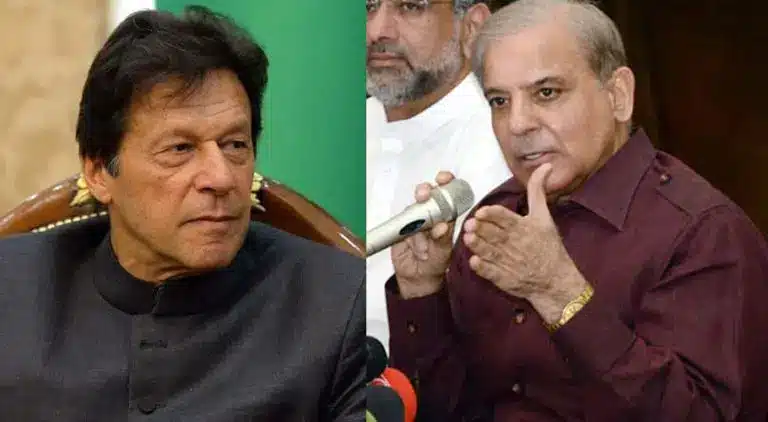On Monday, Prime Minister Shehbaz Sharif extended an olive branch to his predecessor, Imran Khan, and declared himself willing to put aside his differences for Pakistan’s benefit.

Imran Khan has been invited to an all-party conference on February 7 in Islamabad by Pakistani Prime Minister Shehbaz Sharif on Friday. Khan now serves as the head of the Pakistan Tehreek-e-Insaf (PTI) party after being removed from office as prime minister in April 2022.
As Imran Khan once again threatened to dismiss the provincial assemblies of Punjab and Khyber-Pakhtunkhwa if a date for a general election was not set by December 20, Pakistan’s Prime Minister made the offer of discussions.

Imran Khan, the former prime minister of Pakistan, reportedly stated he was ready to “speak to anyone” and “make any sacrifice” for the country’s “uplift, interest, and democracy” in a conciliation statement. When police and Imran Khan’s supporters clashed, Pakistan’s prime minister, Shehbaz Sharif, urged cooperation.
For Pakistan’s growth, interests, or democracy, I won’t hesitate to make any sacrifices. I am open to speaking with everyone and going in any direction, Imran Khan wrote. I want to express my sincere gratitude to our workers from all over Pakistan, especially Lahore, who joined us in the struggle for genuine liberation, he added.

Shehbaz Sharif, in an address to the Senate, added that his administration had sacrificed its politics for the good of the country, asserting that political stability was required for economic stability. He assured the upper house of Parliament that a settlement with the IMF was imminent while accusing Imran Khan’s administration of willfully breaching its commitments to the IMF.
The truth is that when we took over, our economy was dealing with some very serious problems. With the IMF, we had negotiated and signed an agreement, but we did not abide by it. Shehbaz Sharif claimed that since we disregarded the rules and regulations, Pakistan’s reputation, goodwill, and confidence suffered.

The premier further made light of Khan by claiming that a Financial Times story accused him (Khan) of using donations for the Shaukat Khanum Hospital for his political campaigns. In his opinion, Khan’s sale of a specially created watch bearing the image of the Holy Kaaba—a gift from the Saudi Crown Prince—constituted the “cheapest act” ever. Sharif continued, pointing out that the federal government inherited a shaky economy and had to turn to the IMF for help when the international lender was unwilling to put its faith in Pakistan.
Pakistan already faces debt problems, but the country is also plagued by political instability because no prime minister has ever served a full five-year term.












